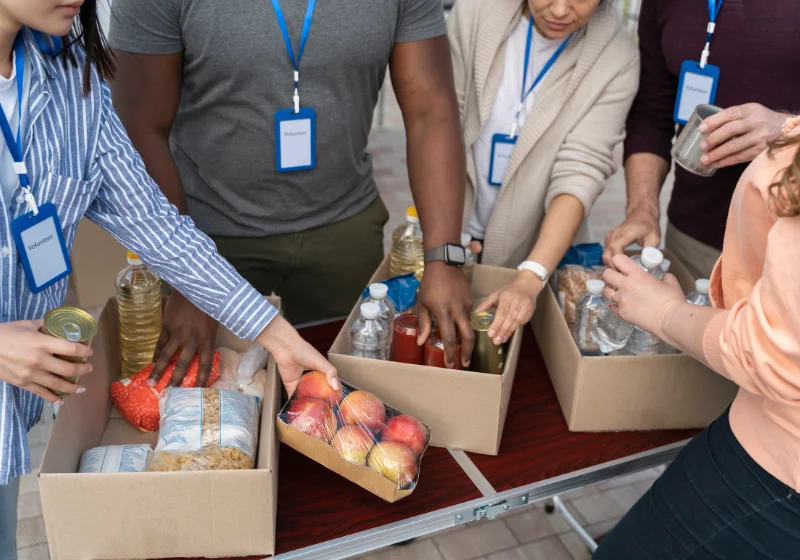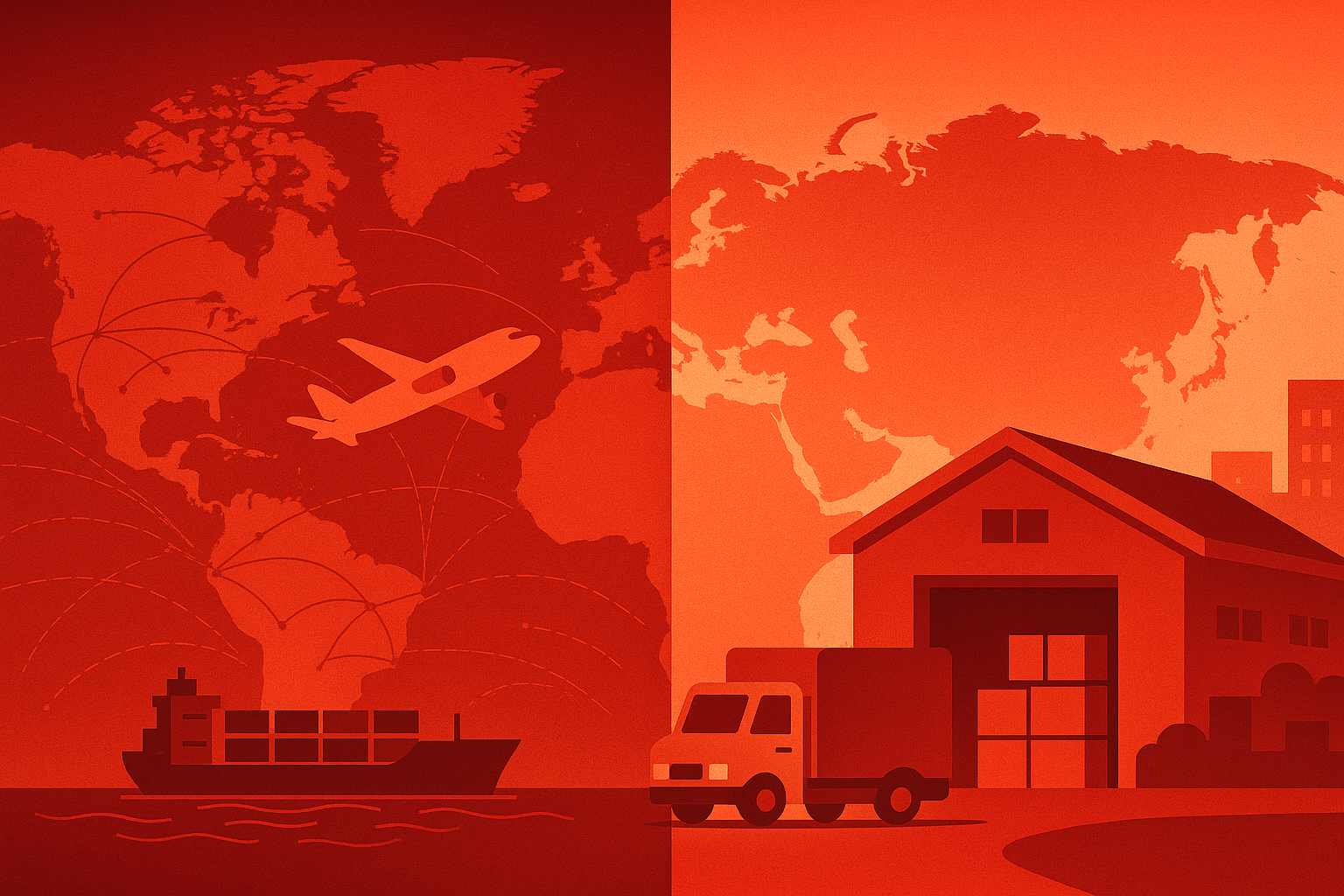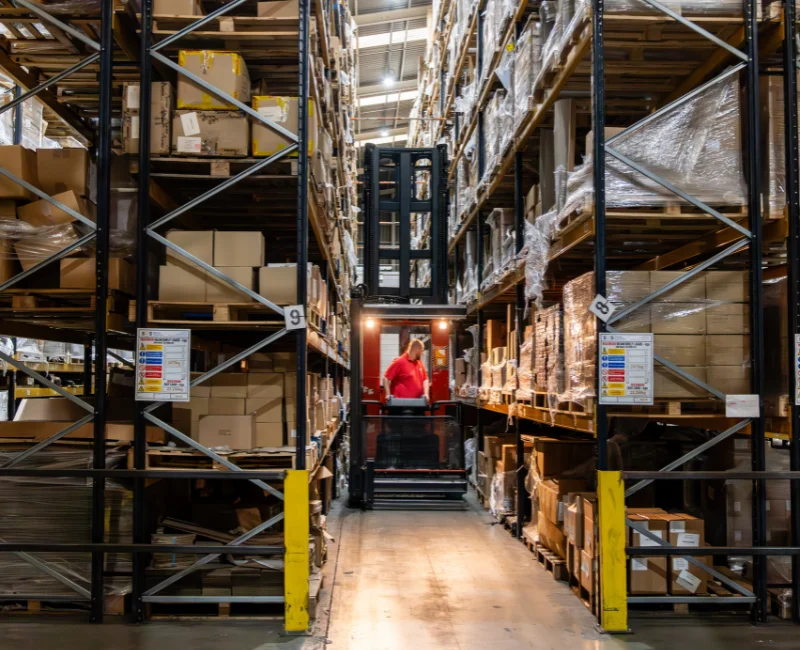Disasters disrupt lives, leave communities vulnerable, and can damage or destroy infrastructure. Humanitarian aid organisations play a crucial role in responding to these events, assisting those in need, and helping to rebuild communities. Delivering aid and supplies to affected areas is difficult and requires sophisticated logistics. In this article, we’ll explore the importance of logistics in disaster relief and humanitarian aid.
What is Logistics?
Logistics refers to the planning, implementation, and control of the movement of goods, resources, and information. It encompasses a wide range of activities, including transportation, warehousing, inventory management, and communication. In the context of disaster relief and humanitarian aid, logistics is the backbone of every operation, ensuring that essential supplies reach affected areas quickly and efficiently.
Good logistics is particularly critical during emergencies, where time, resources, and coordination are all in short supply. Whether it’s delivering food and medical supplies or transporting heavy equipment for rebuilding efforts, humanitarian logistics is vital for restoring stability to disaster-hit communities.
Discover EC Group’s experience within the Third Party Logistics world here.
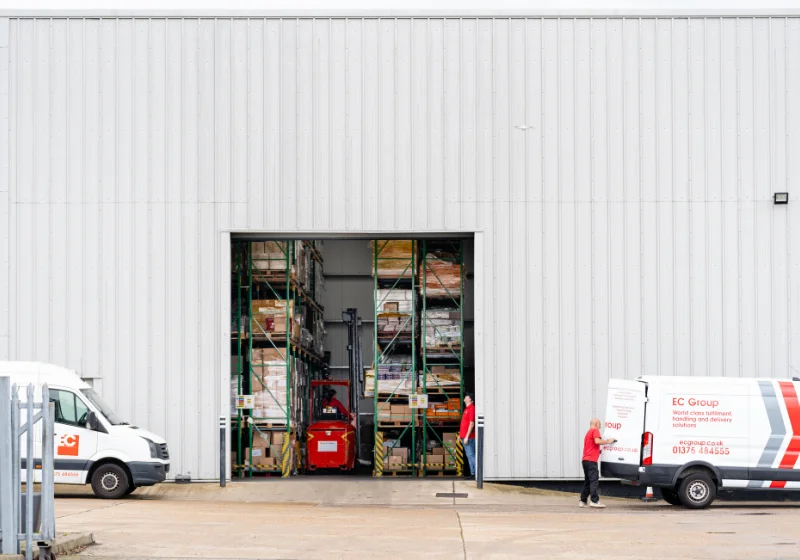
Best Practices in Humanitarian Logistics
Implementing best practices in humanitarian logistics ensures that resources are used efficiently, and aid reaches those in need without unnecessary delays. These practices are based on lessons learned from past disaster responses and reflect the unique challenges of operating in crisis environments.
Pre-positioning Supplies
Stockpiling essential items in strategic locations ensures rapid deployment when a disaster strikes. By reducing the time it takes to source and transport supplies, aid organisations can respond more quickly to emergencies.
Flexibility in Transportation
Successful disaster relief operations rely on multiple modes of transport. Roads and bridges may be damaged, so having options like air and sea transport ensures continued access to affected areas.
Integration of Technology
Technologies such as GPS tracking, real-time data monitoring, and automated inventory systems streamline logistical processes. They improve the visibility of shipments, optimise delivery routes, and ensure that supplies reach their destination efficiently.
Local Partnerships
Collaborating with local organisations and governments helps aid efforts become more effective. Local actors often have better access to affected areas and an understanding of the specific needs of the community.
Phase-Based Planning
Dividing relief efforts into phases (e.g., immediate relief, stabilisation, and long-term rebuilding) allows organisations to prioritise their activities based on the most urgent needs.
These practices are essential for ensuring that resources are allocated effectively and relief efforts remain adaptable in dynamic and challenging environments
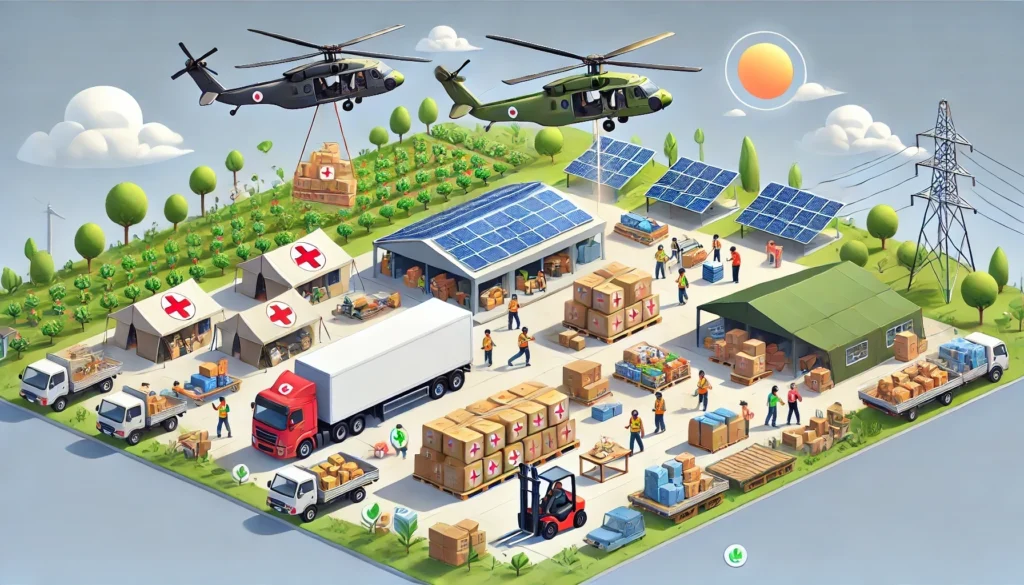
Planning
Logistics experts have access to an array of resources that can help aid organisations to plan their projects. Some examples include:
- Needs Assessment: Helping to identify the specific needs and challenges of the affected population. This includes identifying the type and quantity of supplies needed and the particular logistics challenges that may be encountered during the project.
- Supply Chain Planning: Developing comprehensive supply chain plans considering the specific needs and challenges of each project, including identifying transport routes, coordinating logistics activities between different organisations, and developing inventory management plans.
- Capacity Building: Helping aid organisations build their capacity for disaster relief and humanitarian aid projects. This includes training on logistics best practices, helping to develop supply chain networks, and assisting with the development of contingency plans for various scenarios.
- Risk Assessment: to identify potential vulnerabilities in the supply chain and develop contingency plans for various scenarios. This helps to ensure that the supply chain is resilient and can withstand disruptions such as road closures, power outages, or other logistical challenges.
- Technology Integration: Utilising GPS tracking to monitor shipments, using drones to deliver supplies to inaccessible areas, and using data analytics to identify supply chain bottlenecks and optimise delivery routes.

Transportation: Overcoming Infrastructure Challenges
Transportation is one of the most critical aspects of disaster logistics, yet it is often the most challenging. Damaged infrastructure such as roads, bridges, and airports can delay the delivery of essential supplies. In many cases, aid organisations must rely on alternative methods such as helicopters, boats, or even drones to reach remote or inaccessible areas.
Coordination with local authorities is vital for overcoming transportation barriers. For example, clearing roads and restoring key supply routes can significantly reduce delays. In addition, using technology to optimise delivery schedules ensures that the most critical supplies are prioritised for immediate distribution.
Challenges in Humanitarian Logistics
Humanitarian logistics is fraught with challenges that require careful planning and innovative solutions. Understanding these challenges is key to overcoming them effectively:
1) Resource Scarcity
Aid organisations often face limited access to essential resources, including vehicles, fuel, and personnel. Balancing these constraints while maintaining efficiency is one of the biggest hurdles in disaster relief operations.
2) Infrastructure Damage
Disasters often destroy roads, bridges, and power grids, making it difficult to access affected areas. Organisations must have contingency plans in place to address these disruptions, such as relying on air transport or temporary bridges.
3) Complex Stakeholder Coordination
Relief efforts involve various actors, including governments, NGOs, and private companies. Coordinating these stakeholders is challenging but essential for avoiding duplication of efforts and ensuring that resources are deployed effectively.
4) Unpredictable Demand
Estimating the quantity and type of supplies needed during a disaster can be difficult due to rapidly changing conditions. This unpredictability can lead to shortages or oversupply of certain items, both of which hinder relief efforts.
5) Financial Constraints
Limited budgets can restrict the use of advanced technology or the hiring of skilled personnel, making operations less efficient.
Addressing these challenges requires a combination of pre-planning, real-time adaptability, and collaboration among stakeholders.
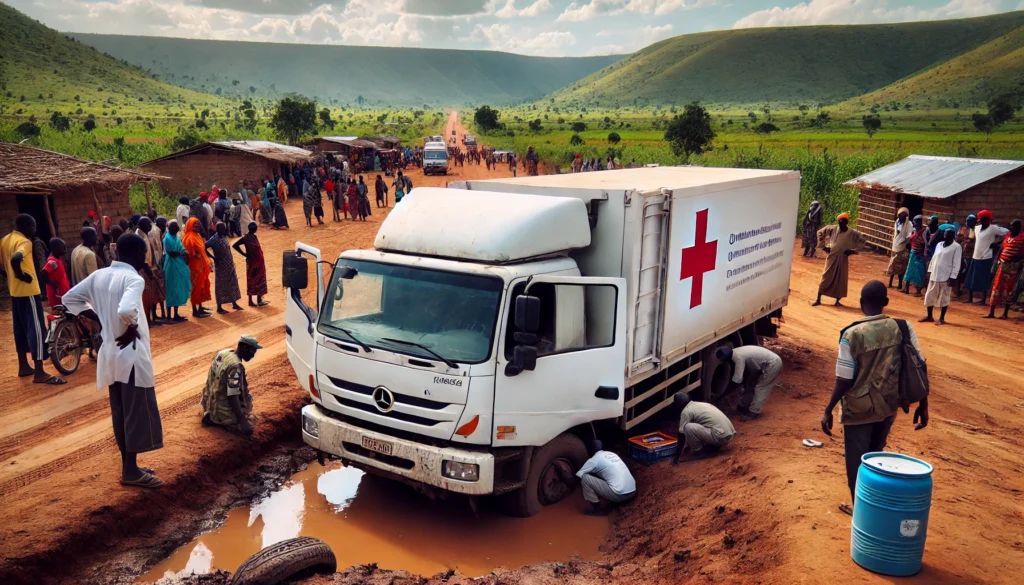
Warehousing: Ensuring Supply Availability
Warehousing is an integral part of humanitarian logistics. It ensures that supplies are stored securely and are readily available when needed. However, managing a warehouse in a disaster context requires special considerations:
- Inventory Management: Avoiding both shortages and oversupply is crucial. A balance must be struck to ensure that resources are available without wastage.
- Cold Storage: Medical supplies such as vaccines often require refrigeration, adding complexity to warehouse operations.
- Proximity to Affected Areas: Warehouses must be strategically located to reduce transportation time while ensuring security from potential risks.
Effective warehousing can mean the difference between a swift response and unnecessary delays in aid distribution.
Collaboration and Coordination
Disaster relief efforts often involve multiple organisations, from local NGOs to international agencies. The success of these efforts depends on effective collaboration and coordination. Key elements of this process include:
- Defining Roles and Responsibilities
Clear communication regarding the roles of each stakeholder ensures that resources are allocated efficiently and efforts are not duplicated.
- Centralised Communication Systems
Having a unified platform for sharing updates, tracking shipments, and allocating resources is critical for maintaining coordination across all actors.
- Joint Training and Preparedness Exercises
Conducting joint exercises before disasters strike helps organisations build trust and improve their ability to work together during emergencies.
- Phased Coordination
Relief efforts should be divided into phases, such as immediate response, recovery, and rebuilding. Each phase requires different strategies, and coordination ensures a smooth transition between them.
Collaboration also fosters innovation, as organisations share knowledge and resources to tackle logistical challenges in new and creative ways.
If you’re looking for logistical, organisational, or third-party support, get in touch with us here.
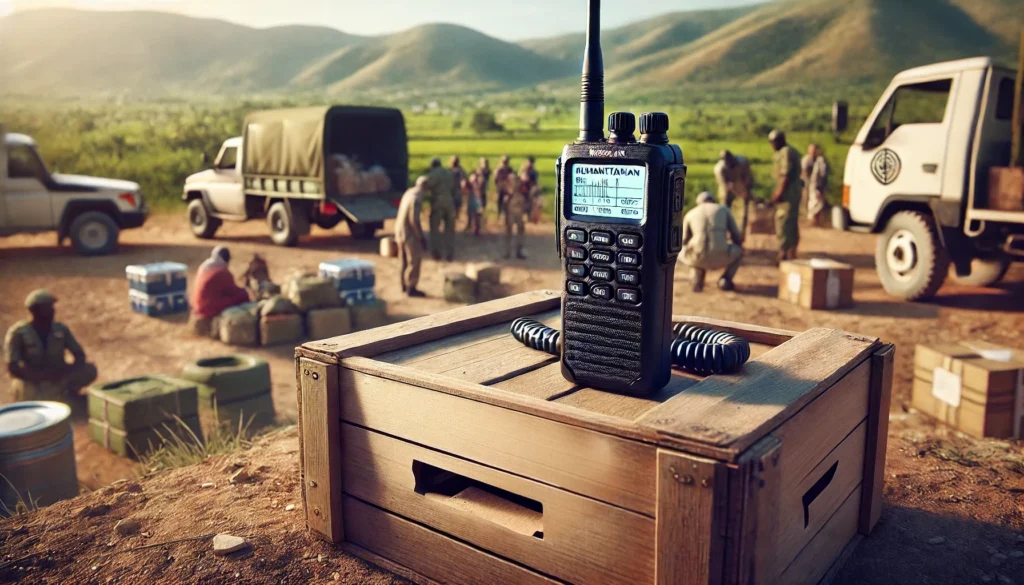
Conclusion
Logistics is the lifeline of disaster relief and humanitarian aid, enabling organisations to deliver essential supplies to affected communities quickly and efficiently. From overcoming infrastructure challenges to coordinating multi-agency efforts, effective logistics ensures that relief efforts make a meaningful impact.
If your organisation wants to enhance its disaster response capabilities, please reach out to us today to discuss how we can support your humanitarian logistics needs. Together, we can make a difference where it matters most.
